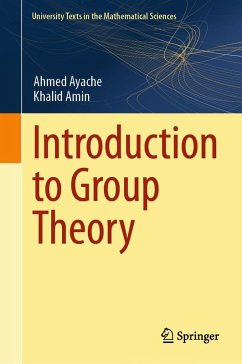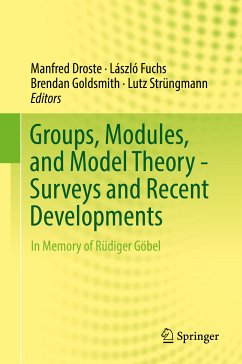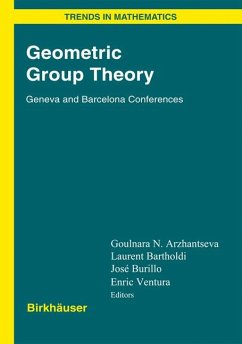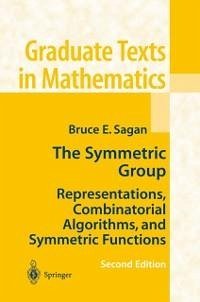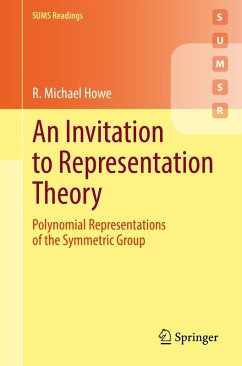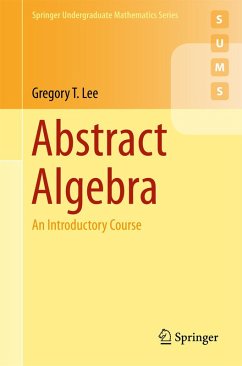
A Gentle Introduction to Group Theory (eBook, PDF)
Versandkostenfrei!
Sofort per Download lieferbar
40,95 €
inkl. MwSt.
Weitere Ausgaben:

PAYBACK Punkte
20 °P sammeln!
The book is intended to serve as an introductory course in group theory geared towards second-year university students. It aims to provide them with the background needed to pursue more advanced courses in algebra and to provide a rich source of examples and exercises. Studying group theory began in the late eighteenth century and is still gaining importance due to its applications in physics, chemistry, geometry, and many fields in mathematics. The text is broadly divided into three parts. The first part establishes the prerequisite knowledge required to study group theory. This includes topi...
The book is intended to serve as an introductory course in group theory geared towards second-year university students. It aims to provide them with the background needed to pursue more advanced courses in algebra and to provide a rich source of examples and exercises. Studying group theory began in the late eighteenth century and is still gaining importance due to its applications in physics, chemistry, geometry, and many fields in mathematics.
The text is broadly divided into three parts. The first part establishes the prerequisite knowledge required to study group theory. This includes topics in set theory, geometry, and number theory. Each of the chapters ends with solved and unsolved exercises relating to the topic. By doing this, the authors hope to fill the gaps between all the branches in mathematics that are linked to group theory. The second part is the core of the book which discusses topics on semigroups, groups, symmetric groups, subgroups, homomorphisms, isomorphism, and Abelian groups. The last part of the book introduces SAGE, a mathematical software that is used to solve group theory problems. Here, most of the important commands in SAGE are explained, and many examples and exercises are provided.
Dieser Download kann aus rechtlichen Gründen nur mit Rechnungsadresse in A, B, BG, CY, CZ, D, DK, EW, E, FIN, F, GR, HR, H, IRL, I, LT, L, LR, M, NL, PL, P, R, S, SLO, SK ausgeliefert werden.
Alle Preise in Euro und inkl. der gesetzl. MwSt. | Innerhalb Deutschlands liefern wir preisgebundene Bücher versandkostenfrei. Weitere Informationen: bitte hier klicken
Support
Bitte wähle dein Anliegen aus:
Rechnungen
Bestellstatus
Retourenschein
Storno



